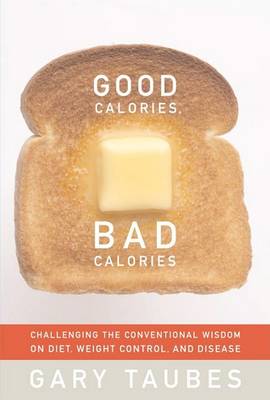Reviewed by wyvernfriend on
Now I have issues with a one size fits all model of diet. I don't think that's how it works, but that's me. I think that different people react differently to different foods and that some of the diet models we're working with in our society are too generic, not based on people but on statistics and this book points out that those statistics are based on a bad model, on groups of patients who are of a type, and maybe a particular diet works for them but these things don't work for everyone. He points at people who eat more and are thin and then people who eat less than them and are larger.
Due to my gluten intolerance (I get terrible gastric issues if I eat any form of gluten and this was tested accidentally by my husband) I have reduced a lot of my carbohydrates in my diet. This has creeped up over the last year or so, as has my weight, this book makes me think that maybe I should start taking more of my refined carbohydrates out and trying to also reduce my blood pressure.
Now why do I have reservations about this diet? Because I don't think it's that simple. Because when I eat too much fat in my diet it doesn't agree with me, I know people who are very healthy on diets that are high in carbohydrates. I don't believe one size fits all but I do believe that there is something terribly wrong about the diet industry and what is presented as good to eat.
It's worth wading through the pages if only to make you think about what we're told about foods and how science isn't always accurate when it does research because of researcher bias and the fact that sometimes the models are flawed.
Honestly after reading this I believe that we're living through a huge research project that would be rejected on ethical grounds if it were actually formally acknowledged.
Reading updates
- Started reading
- 9 December, 2012: Finished reading
- 9 December, 2012: Reviewed
